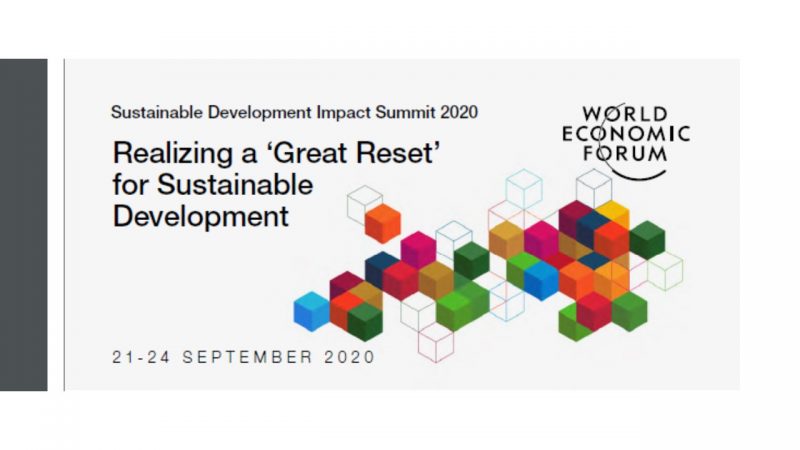From 21 to 24 September, the WFO President Theo de Jager attended the World Economic Forum’s fourth and, for the first time virtual Sustainable Development Impact Summit (SDI20), taking place in the context of the United Nations General Assembly.
Scaling-up solutions to tackle climate change and advance sustainable development was the central theme of the discussion. The WFO President joined the debate to represent the worldwide farmers’ community and its interests.
In a nutshell, it is what happened at SDI20!
22 September – Board Meeting of Stewards of the Food Systems
The WEF’s Board of Stewards of the Food Systems Initiative features the participation of many representatives in the business, policy and social sectors to work together through multistakeholder approaches, in line with the 2030 Agenda, towards inclusive, efficient, sustainable, nutritious and healthy food systems.
The meeting aimed to discuss on priority actions for the next one-year towards the 2021 Food Systems Summit.
As farmers’ representative within the Board, the WFO President reiterated that soil health is at the basis of all agricultural production, no matter what or where we farm. He indicated WFO willingness to collaborate with WEF, World Bank and other stakeholders on how rolling out a high impact global program on it.
23 September – Galvanizing Game-Changers for the Future of Food
The event convened leaders from government, business, international organisations, farmer associations, civil society, and academia to scaling up food systems solutions on the ground in the lead-up to the 2021 UN Food Systems Summit.
During his speech, de Jager highlighted how farmers and their expectation and needs are central to the Food System Summit.
Furthermore, he took the opportunity to promote THE CLIMAKERS as a meaningful example of farmers-led initiatives that can be scaled up.
It is worth mentioning that as a member of the WEF’s Food Action Alliance (FAA), WFO is contributing to the development of the so-called Food Innovation Hubs leading up to the UN Food Systems Summit in 2021. Such Hubs are conceived to stimulate the partnership between farmers and stakeholders at the regional level to promote food system transformation actions at country and local level.
WFO is working to ensure that farmers’ organisations are involved in these actions to make them aligned to the real needs of farmers, through direct consultations.
The results of the first consultation will be presented at the Pre-UN Food System Summit in Wageningen in November.
24 September – “Food Systems Dialogue – Connecting Farmers and Consumers”
The event, co-hosted by Consumers International and the World Economic Forum within the framework of the Sustainable Development Impact Summit, focused on how making food systems safe, fair, more healthy and sustainable concerning diets, consumer information, sustainability and the role of technology. The session also provided inputs into the Food Systems Dialogues, the global series of facilitated round-table discussions that encourage collective action for transforming food systems.
The WFO President joined the virtual meeting to bring the farmers’ voice into the debate.
He reminded that farmers and consumers are at the first and last ring of the food chain. We cannot push a chain, we can only pull it, and the only pulling force is the market, hence the consumers.
Farming is an economic sector: farmers aim at selling their products to increase their incomes and livelihoods, so they basically produce what the market wants, and consumers are those who can often set the market preferences for what farmers produce.
COVID-19 has shed the lights on the importance of food production and distribution given all the value chain disruptions caused by the pandemic and consequent lockdowns and market closures. It is fundamental that consumers know where food comes from, and how it is produced, what is its footprint. Building a stronger and closer relationship among consumers and producers is key to shift towards more healthy, nutritious and affordable diets, in the framework of more sustainable and inclusive food systems for all.
“We must harness this golden opportunity to join consumers and farmers together”, he stated during his opening remarks.
